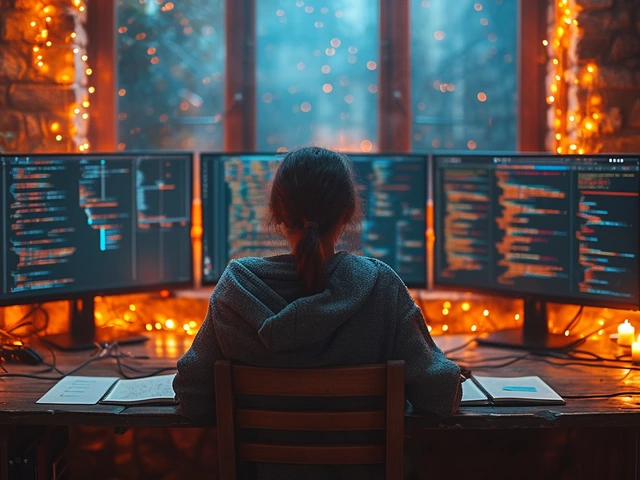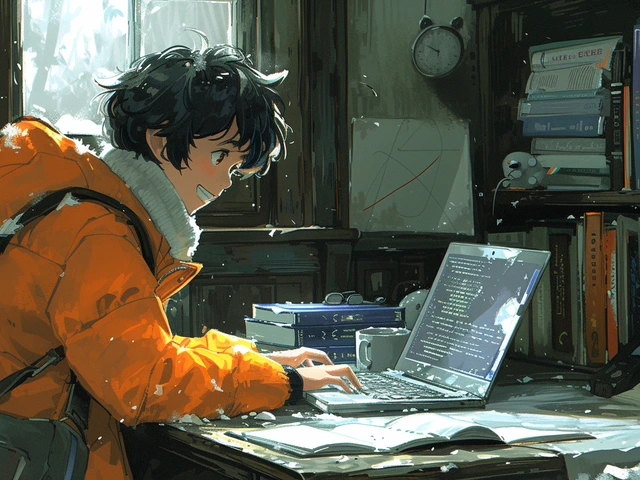Coding Tips: The Torchbearer for Every Coding Task

Coding Tips: The Torchbearer for Every Coding Task
Understanding the Basics: The Foundation of Coding
Before we delve into the specifics, it's crucial to understand the fundamentals of coding. Coding is like learning a new language, and like any other language, it has rules and syntax that must be followed. The syntax is the set of rules that dictate how programs in a specific programming language are written. You will encounter errors if these rules are not strictly followed. As the saying goes, you must learn to walk before you can run. In the same vein, you need to understand the basics of coding before you can move on to more complex tasks.
In learning the basics, it's important to choose a language that's suitable for beginners. Python, for example, is a great starting point because of its simplicity and readability. It's used in a wide range of applications, including web development, data analysis, and artificial intelligence. Once you've chosen a language, you can then focus on learning its syntax, data types, and basic programming concepts such as loops and conditionals.
Selecting the Right Tools: Your Coding Arsenal
Just as a carpenter needs his tools to build a house, a coder needs the right software to write and execute code. This typically includes a text editor, a compiler, and a debugger. A text editor is where you'll write your code. There are many text editors available, each with its own set of features. Some popular choices include Sublime Text, Atom, and Visual Studio Code.
A compiler is a program that translates your code into a language that your computer can understand. The choice of compiler depends on the programming language you're using. Finally, a debugger is a tool that helps you find and fix errors in your code. It allows you to step through your code line by line and monitor the values of variables at each step.
Mastering Debugging: The Art of Fixing Errors
Debugging is an integral part of the coding process. It involves identifying and fixing errors in your code. These errors can be syntactic, logical, or semantic. Syntactic errors are the easiest to fix because the compiler will tell you where they are. Logical and semantic errors, on the other hand, can be more challenging to identify and fix because they don't cause the program to crash. Instead, they cause it to behave in unexpected ways.
While debugging can be frustrating, it's also an excellent opportunity to learn and improve your coding skills. It forces you to think critically and analytically, and it helps you understand how your code works in greater detail. So, don't be discouraged when you encounter errors. Instead, see them as opportunities for growth and learning.
Adopting Best Practices: Writing Clean and Efficient Code
Writing clean and efficient code is a skill that separates good coders from great ones. Clean code is easy to read and understand, which makes it easier to maintain and debug. It involves following certain conventions and practices, such as using meaningful variable names, commenting your code, and organizing your code into functions or classes.
Efficient code, on the other hand, is code that runs quickly and uses resources effectively. This often involves choosing the right data structures and algorithms for the task at hand. For example, if you need to store a large amount of data, a database might be a better choice than a list or an array. Similarly, if you need to sort a large list of numbers, a quicksort algorithm might be more efficient than a bubble sort algorithm.
Embracing Collaboration: The Power of Teamwork
Coding is often seen as a solitary activity, but in reality, it's a highly collaborative process. In most professional settings, coders work in teams to develop software. This involves collaborating with other coders, as well as with designers, project managers, and other stakeholders. As such, good communication and teamwork skills are just as important as technical skills.
Collaborating with others can also help you learn and improve your coding skills. By working with others, you can learn new techniques and approaches, get feedback on your code, and gain insights into how others approach coding problems. So, don't shy away from collaboration. Instead, embrace it and see it as an opportunity to grow and learn.
Continuing Education: The Key to Staying Relevant
Finally, it's important to remember that learning to code is a lifelong journey. Technology is constantly evolving, and new programming languages, tools, and techniques are being developed all the time. As such, it's crucial to keep learning and stay up-to-date with the latest developments in the field.
There are many resources available for continuing education, including online courses, tutorials, and coding bootcamps. You can also join coding communities and forums, where you can learn from others and share your knowledge with them. By continuing to learn and grow, you can stay relevant and competitive in the ever-changing world of coding.
About
CH Tech Development is a premier resource for the latest updates and insights in the world of technology development. We provide extensive information, articles, and guides on cutting-edge technological advancements. Explore our site to empower your knowledge about the dynamic field of tech development.
Latest Posts


The Impact of Artificial Intelligence on Social Media Strategies
By Raymond Sterling Oct 27, 2023

Mastering Programming: Essential Coding Tips and Tricks for Beginners
By Larissa Bentley Dec 22, 2023

Mastering Code Debugging: Essential Strategies for Zero-error Programming
By Cassandra Upton Feb 9, 2024

Write a comment